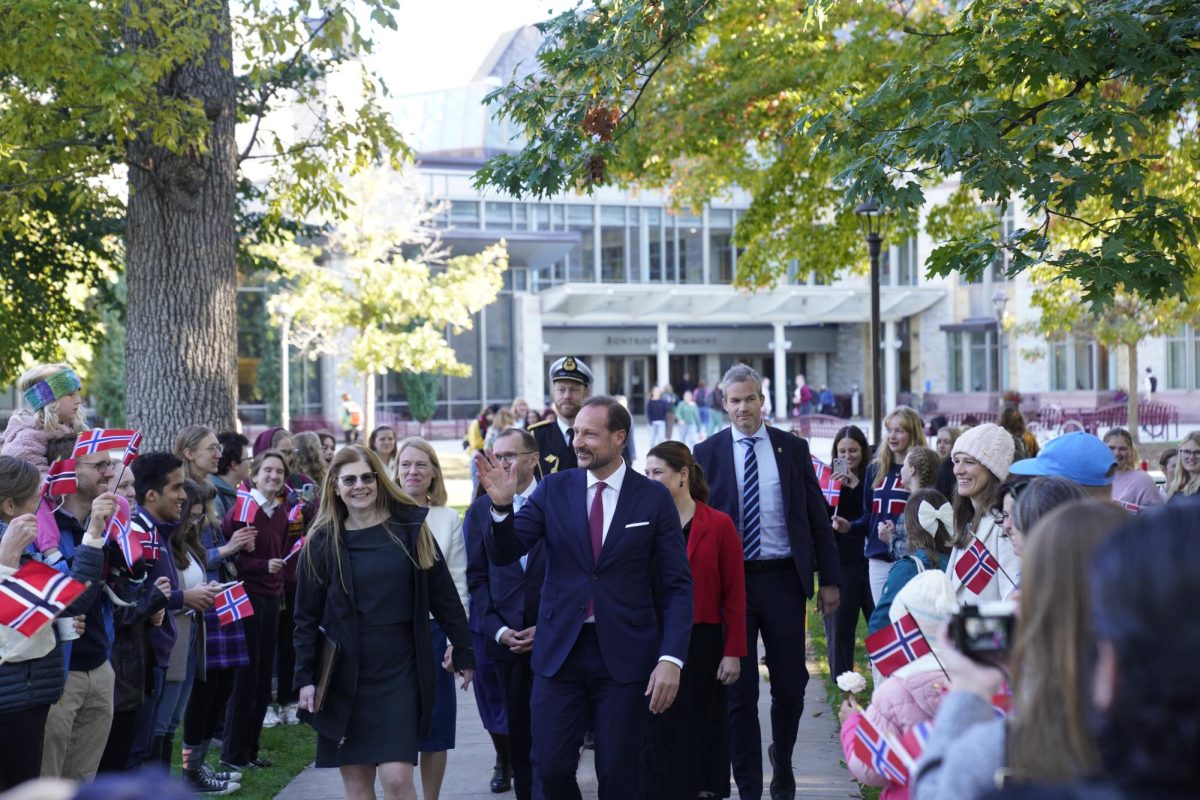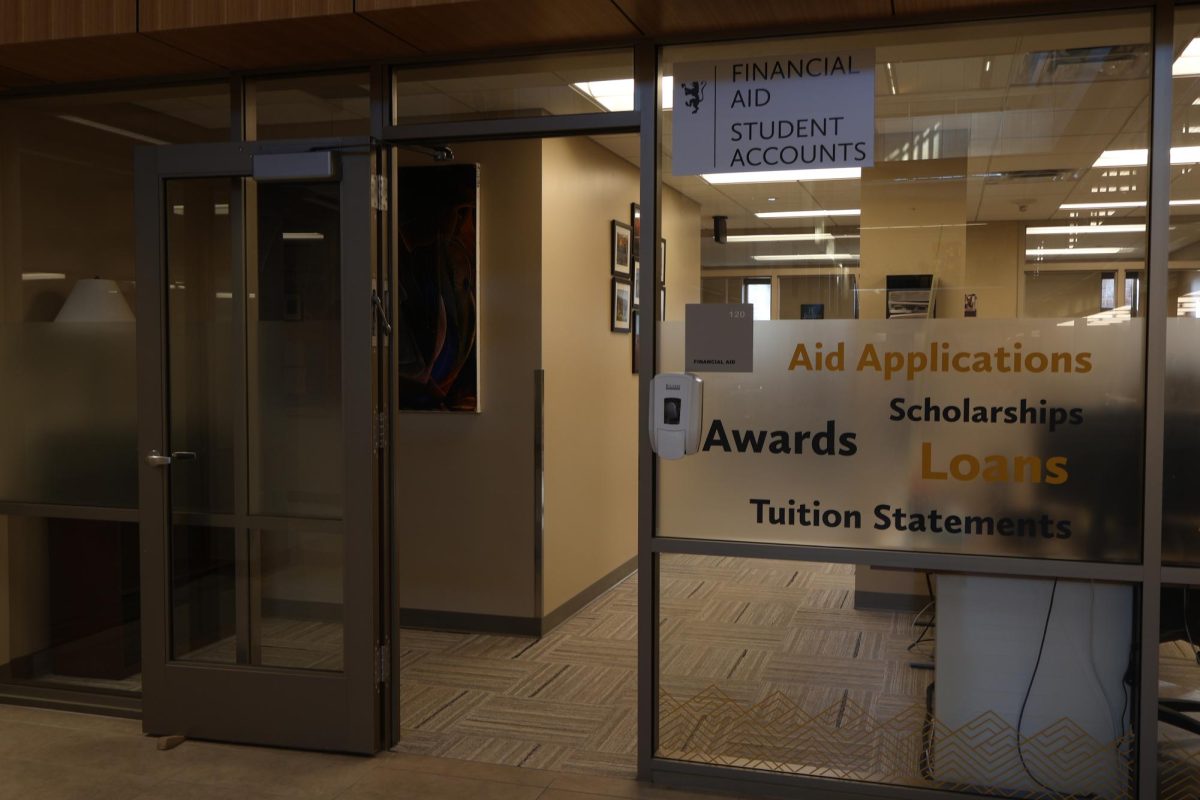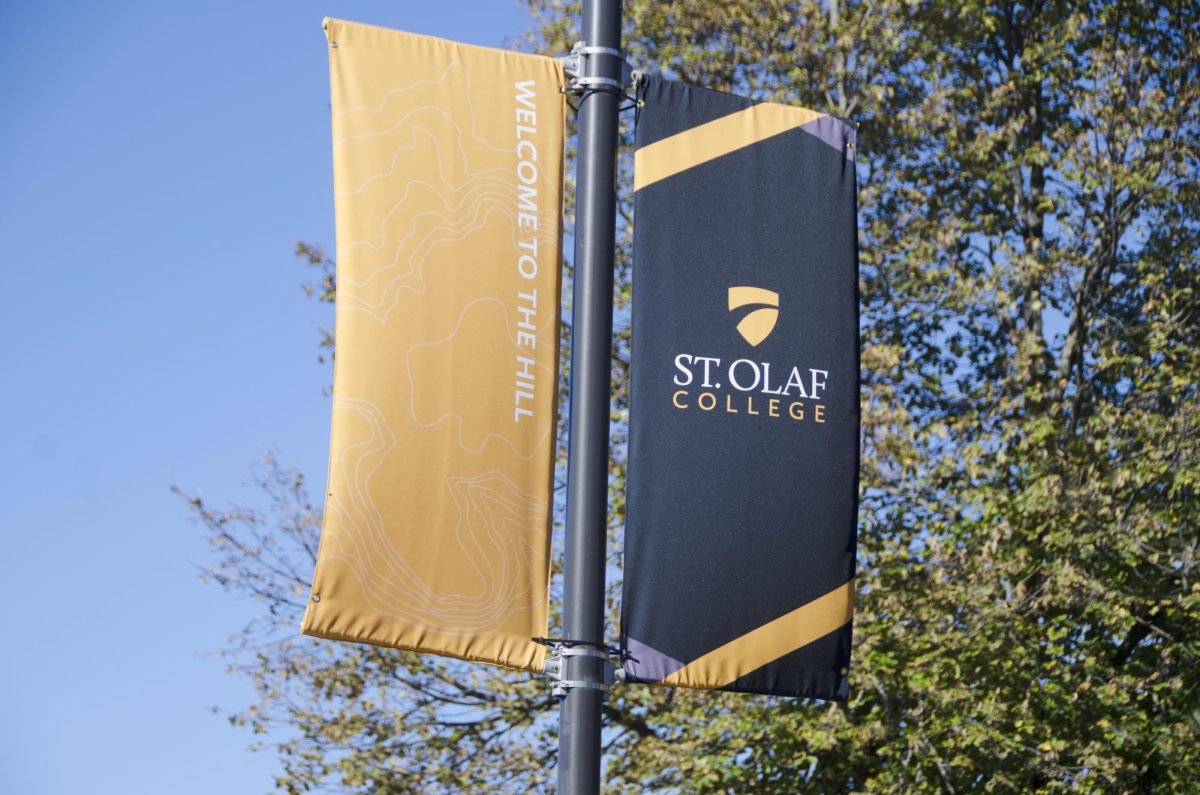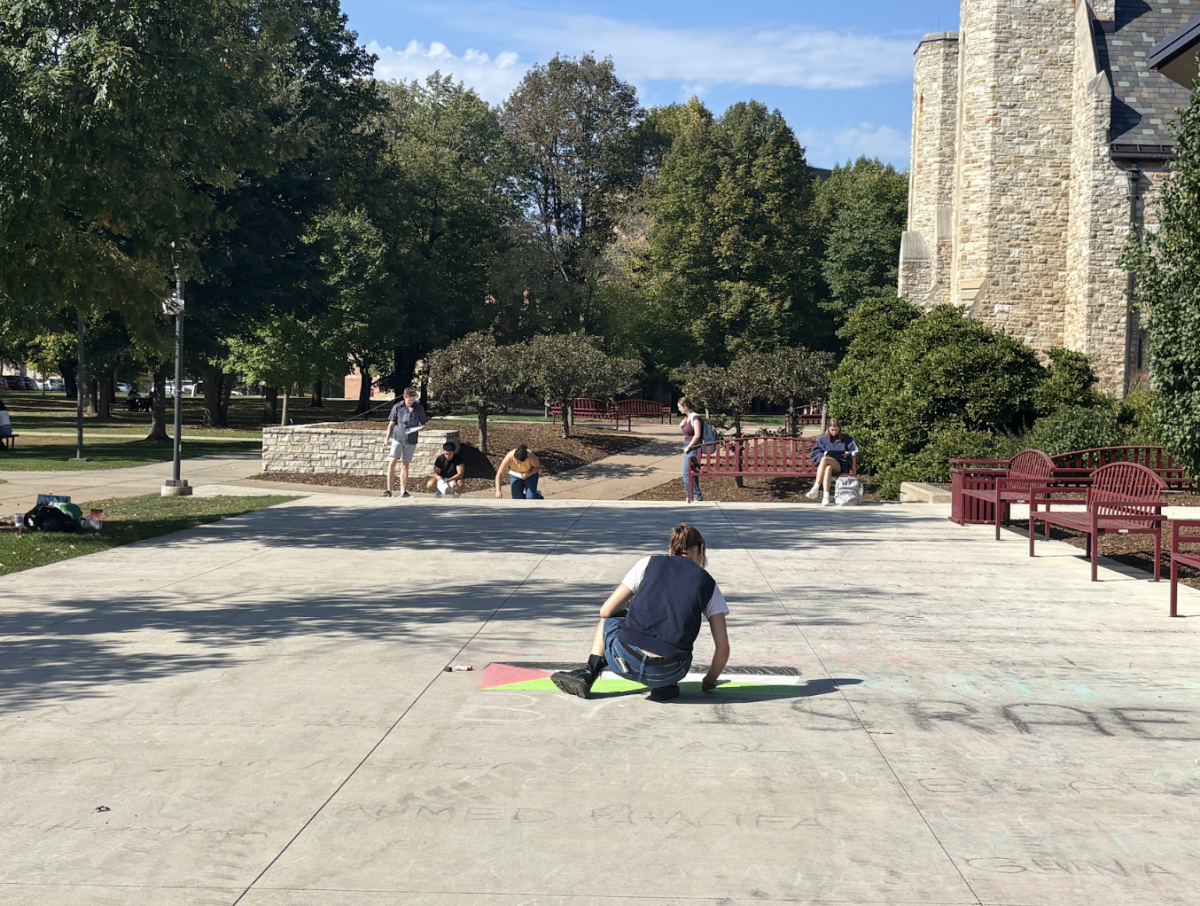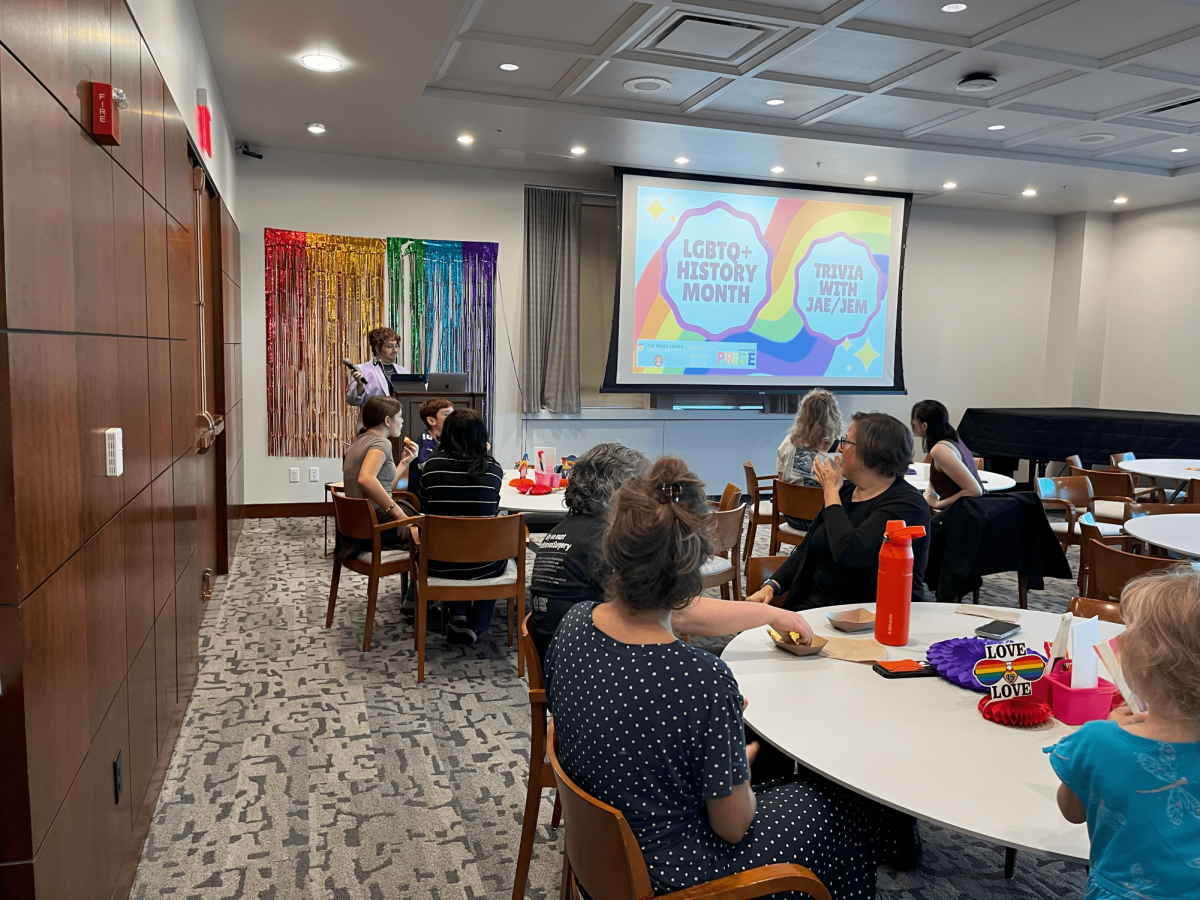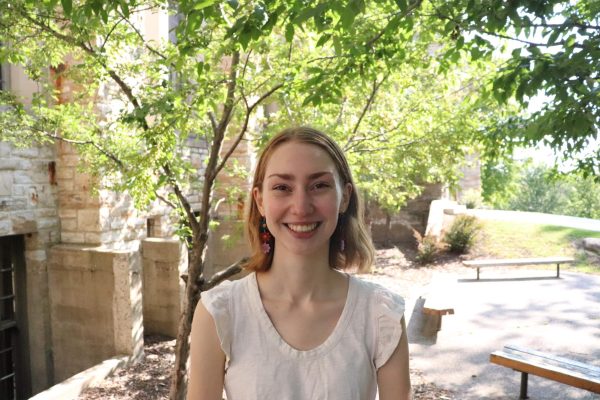At 3:15 p.m. on Feb. 17, a group of enthusiastic and politically-minded students crowded into Holland Hall to listen as professors in the Political Science department presented in a panel discussion titled “Are we in a constitutional crisis? And what is a constitutional crisis anyway?”
In the first five weeks of his second term, President Donald J. Trump has kept Americans on their toes as he signs executive order after executive order. Numerous of these orders have been met with resistance by the judicial branch, however, as judges across the country continue to find the White House’s directives to be in direct violation of the law.
As the Trump Administration releases statements suggesting that the executive may reject court orders and defy judicial authority, concerns arise about the fragility of an already delicate balance of powers between the three branches of the U.S. government. Over the past few weeks, a number of national media outlets, notably NPR, the New York Times, and CBS News, have published their own responses to this question of “Are we in a constitutional crisis?”
According to Professor and Department Chair of Political Science Doug Casson, he had organized this talk following a conversation with fellow Professor of Political Science and Asian Studies Katherine Tegtmeyer Pak.
Members of the panel included Casson, Tegtmeyer Pak, Professors of Political Science Daniel Hofferning, Kris Thalhammer, and Chris Chapp, in addition to St. Olaf’s chief legal officer, Vice President and General Counsel Carl Crosby Lehmann.
One by one, the panel discussants took turns providing an answer to the questions posed based on their respective knowledge and area of expertise. Answers varied as each respondent approached the question through a slightly different lens, highlighting the complexities of the issue and suggesting that perhaps there is not one clear answer.
Casson began the discussion with a nod to the authors of the Constitution, who had anticipated conflicting views and structured the government to allow opposing views to operate in tandem with one another.
“The U.S. system is not meant to be harmonious. We should not expect the people’s sovereign will to express itself in one single unified voice,” Casson said. “In reality, in our system, we are in conflict all the time.” Casson added, “The struggle that I have is trying to distinguish this run-of-the-mill constitutional conflict with something like [a] constitutional crisis that threatens the structure itself.”
Lehmann, similarly, acknowledged that actions being taken by the current administration are concerning, but was not inclined to identify the situation as a “constitutional crisis.” He pointed to the Supreme Court’s judgement to uphold birthright citizenship as a demonstration of the strength of the Constitution. “There’s a lot to be worried about,” Lehmann said. “I’m sure we’re in many crises but not a constitutional one.”
Chapp was also hesitant to say that we are in a constitutional crisis, but indicated that we may be approaching one. Drawing on his background in quantitative research, Chapp shared that what we are seeing happen with the Trump administration is different from past presidencies. “At the point that the executive stops complying, which remains to be seen, is where I tip in the direction of yes, this is a constitutional crisis,” he said.
Hofferning also categorized certain actions by the Trump administration as characterizing a “constitutional crisis.” “I think one of the biggest aspects of potential constitutional crisis that almost seems forgotten is the pardoning of the January 6th [insurrectionists],” Hofferning said.
Tegtmeyer Pak took a slightly different approach to the question, opting to address the global trend away from democracy and toward autocracy in recent years. Tegtmeyer Pak cited scholarship about indicators pointing toward decline in democracy. “We have evidence that in general, in the United States, those measures have been on the decline,” she said.
Thalhammer shared similar sentiments, expressing concern that the guardrails put forth by the founders may not hold, given the fact that the courts do not have the ability to enforce their decisions. “I worry about autocracy,” she said.
The discussion concluded with a time for questions from the audience. Along the lines of “what can we, as citizens, do amidst this time of conflict,” one student took the opportunity to ask, “What types of political action at the grassroots level have met today and can be consequential?”
In response, Tegtmeyer Pak emphasized the significance of joining coalitions and calling your government representatives.
Thalhammer built on the ideas shared by her colleague, expressing the importance of avoiding self-censorship.
“We need to keep pushing, especially at this early stage. We need to speak up about our truth, we need to be connected to people — those coalitions that Tegtmeyer Pak was talking about,” she said. “It’s super important to know who you can trust, who’s on the same page, but also to the degree that is possible, to have conversations with people and try to find common ground.”
“There is a way in which we can take a posture of obedience, in which we are just waiting to be told what we can and cannot do,” Casson said. “That’s not a posture we should take as faculty, and that is not a posture that I hope you, as students, take.”
